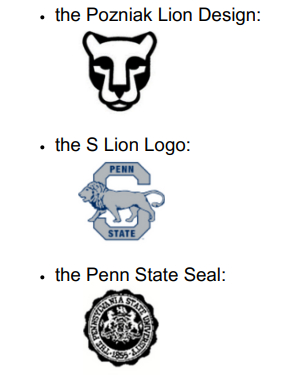- within Intellectual Property topic(s)
- with readers working within the Media & Information and Law Firm industries
- within Intellectual Property and Energy and Natural Resources topic(s)
Wicked: Part I released to theaters this November and has been very popular, already grossing over $450 million worldwide. It is a prequel to the famous story, The Wizard of Oz, and follows Elphaba, the future Wicked Witch of the West. Like every prequel, Wicked: Part I includes many of the same characters and items that we all know and love from The Wizard of Oz. But one item that many viewers may be surprised by is that Dorothy's slippers are not ruby but silver.
An interesting aspect of the choice to use silver shoes is that this choice holds true to the original story. The original The Wizard of Oz was a novel published in 1900 and it described Dorothy's shoes as silver. However, the most popular version of The Wizard of Oz was the 1939 film starring Judy Garland as Dorothy. It was in this 1939 film that the ruby shoes were first introduced.
When a work is based upon an earlier work, such as the creation of a film based upon an earlier novel, the later work is considered a derivative work in copyright law. Such a derivative work has a copyright term independent from the original work, but the derivative work's copyright only protects the aspects that are new to the derivative work. Thus, in the case of The Wizard of Oz, the copyright protection over the silver shoes is independent from the copyright protection over the ruby shoes because the silver shoes were first introduced in the original novel but the ruby shoes were first introduced in the derivative film 39 years later.
While the creators of Wicked: Part I have not admitted a specific reason for the choice to use silver slippers, at least one factor likely considered was the copyright term of the silver vs. ruby shoes. Because of the independent copyrights and the term of the ruby shoes' copyright beginning 39 years later, we are in a window of time where any copyright protection over the silver shoes has expired, but copyright protection over the ruby shoes remains in force. Thus, the silver shoes have entered the public domain and can be used for free without a license or risk of infringement, but the ruby shoes are still protected and require a license to use.
If your clients intend to use a character or item from a famous work of art, please consult with a member of TC's IP group for assistance in helping your clients determine what requires a license and what has entered the public domain.
PENN STATE WINS TRADEMARK INFRINGEMENT CASE OVER PENN STATE-THEMED APPAREL
Last month, a jury rendered a verdict in favor of The Pennsylvania State University ("Penn State") on its claims of trademark infringement against Defendants Vintage Brand, LLC and Sportswear Inc. (d/b/a Prep Sportswear), an affiliate of Vintage Brand. Vintage Brand, through its website, sells collegeteam branded clothing and accessories. Due to these activities, Vintage Brand has been sued for trademark infringement by multiple universities, including Purdue University, Baylor University, The University of Arizona, Arizona State University, The University of California at Berkeley and Los Angeles, The University of Colorado Boulder, The University of Oregon, Oregon State University, The University of Southern California, Leland Stanford Jr. University, University of Utah, University of Washington, Washington State University, and the University of Illinois. None of these prior cases reached a trial.
Penn State alleged infringement of seven of its trademarks including the marks PENN STATE and the PENNSYLVANIA STATE UNIVERSITY, and the following marks:


In defense, Vintage Brand offered a unique argument: while it acknowledged the purpose of trademarks is to distinguish the goods sold by the mark owner from those sold by others (source identification), it argued Penn State's marks do not act as source identifiers; instead the marks served only an aesthetic purpose according to Vintage Brand. Vintage Brand argued customers purchase goods with the Penn State marks to express support for Penn State or to be associated with Penn State, not because the marks indicate the source of the goods. In support of its position, Vintage Brand cited the deposition testimony of Penn State's own witnesses, who claimed they purchase Penn State-branded products to "support the University" and because they "feel pride in the University."
The jury rejected Vintage Brand's position and returned a verdict in favor of Penn State on each infringement count and awarded Penn State $28,000 in damages. Penn State has now moved for attorneys' fees. As of the date of this publication, the parties are briefing the attorneys' fees motion.
This case is a win for brand owners who want to stop third parties from selling apparel bearing the brand owner's marks. It remains to be seen whether Vintage Brand will appeal and, if it does, what the result on appeal will be. It also remains to be seen whether other brand owners (such as musical bands or retail outlets) will use Penn State's win to bolster their own cases against third parties selling merchandise bearing their names/brands. But while Penn State-branded goods can no longer be found on Vintage Brand's website, Vintage Brand still offers branded goods for over 200 colleges and universities.
If you have a client who needs trademark assistance, please contact a member of TC's IP group.
CHALLENGING THE XPECTED, SOCIAL MEDIA PLATFORM "X" OPPOSES STATUS QUO AND USER'S ABILITY TO SELL AND ASSIGN SOCIAL MEDIA ACCOUNTS
Social media is one of the most effective ways for businesses to connect with new and existing customers, promote and advertise their brands, and generate revenue. We consider business social media accounts to be assets with value, and this is evidenced by the typical inclusion of social media accounts in business purchase agreements and settlement agreements. However, the social media platform X is now disrupting this practice, stepping into the legal fight over Alex Jones' Infowars, and asserting that social media accounts on the X platform are the exclusive property of X Corp., and cannot be assigned without X Corp.'s consent.
Alex Jones, founder of Infowars, a media organization, filed for bankruptcy after he was ordered to pay $1.5 billion in damages resulting from defamation lawsuits brought by the families of Sandy Hook Elementary School shooting victims. The bankruptcy judge ordered a court-supervised liquidation of Jones' assets, which included intellectual property assets. Jones' Free Speech Systems, the parent company of Infowars, was recently auctioned off to help pay the judgment. The sale included Infowars' website and social media accounts, which are followed by millions of users. The news site The Onion, with backing of the families, was declared the winner of the auction. Jones challenged the winning bid in court and in a recent order, the bankruptcy judge rejected The Onion's purchase, taking issue with the auction process.
Social media platforms typically stay out of the battles between rival claimants to social media accounts, leaving it to the courts and parties involved to come to a resolution. However, in what is believed to be the first time a social media platform has intervened, Elon Musk's X Corp. filed a limited objection to the trustee's successful bidder notice.
X Corp. did not object to the proposed sale as a general matter, but objected to any proposed sale or purported transfer of any account used by Alex Jones or Free Speech Systems that is maintained on the X platform. X Corp. states that all accounts on X are governed by the X Terms of Service. Based upon X's Terms of Service, all right, title, and interest in and to X Corp.'s services, including its various websites, short message services (SMS), application programming interface (API), email notifications, applications, buttons, widgets, ads, commerce services, and other services are X Corp.'s exclusive property. Below are the relevant portions of X's Terms of Service:
We give you a personal, worldwide, royalty-free, non-assignable and nonexclusive license to use the software provided to you as part of the Services. This license cannot be assigned, gifted, sold, shared or transferred in any other manner to any other individual or entity without X's express written consent. (emphasis added)
All right, title, and interest in and to the Services (excluding Content provided by users) are and will remain our and our licensors' exclusive property.2
According to X Corp., X accounts have no value absent X's services. A user needs these services to create an account, post, react, follow others, and interact with others. The account and the services are one and the same.
In the objection, X Corp. attempts to make clear that what account holders own is their content (i.e what they submit, post, or display on or through X's services). X Corp. states that this 'content' is distinct and separate from X's services.
While the Court has not yet ruled on X Corp.'s objection, the mere submission of this argument by a social media platform may raise concerns for businesses. The sale, transfer, and assignment of social media accounts are commonplace in asset purchase agreements and settlement agreements.
For example, when one business acquires another, they will typically acquire its social media accounts. Or in an infringement dispute, often times infringers will agree to cease use of a trademark and to transfer social media accounts to the brand owner as part of a settlement agreement.
X Corp.'s objections raises many questions - If social media accounts are nonassignable, where does this leave account holders? If one business acquires another but intends to continue to do business under the acquired business's name, do they need to create a new social media account and rebuild a following? If we want an infringer to stop using a social media account with a handle that includes our trademark, do we ask that they delete the account and hope we can create a new account with the handle before it is taken by someone else? Does this affect previous sales and assignments of X accounts? Will other social media platforms follow suit?
Moving forward, it may be worth considering what your business's objectives are when acquiring the social media accounts of another. Is your business concerned with stopping the other party's use of the social media account? Are you concerned with acquiring the social media account's handle? Would you like to benefit from the social media account's large following? All of these may be considerations that can be carefully crafted into a settlement agreement or asset purchase agreement along with provisions on how to handle any potential objection by the social media platform.
While it is still early, this unprecedented and unexpected objection is one to watch as it may change the contractual provisions on how social media accounts are sold and assigned, and how and when social media platforms may weigh in on these matters. TC's IP group is staying up to date on developments. If you or a client needs assistance in navigating future sales and assignments of social media accounts, please reach out to a member of our IP group.
To view the full article click here
The content of this article is intended to provide a general guide to the subject matter. Specialist advice should be sought about your specific circumstances.










